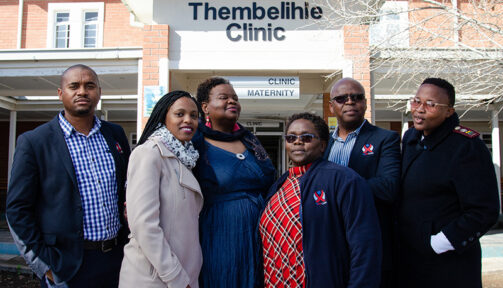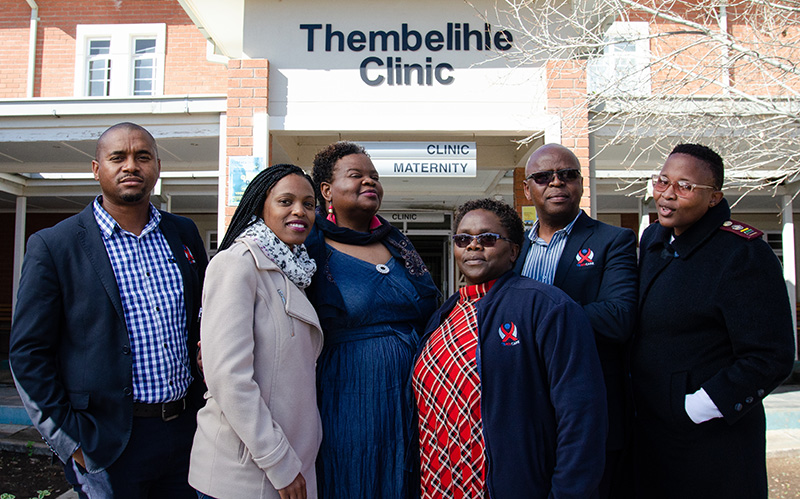The best place to find creative ideas to solve problems in the clinic is to ask the clinic workers themselves. Remarkably obvious and yet profound in its impact, the idea of worker-driven “change ideas” has been a central tenet of the quality improvement (QI) methodology since its introduction to clinical medicine in the 1940s.
Optimizing Performance by Improving yes Quality (OPIQ) South Africa, was a project completed in the fall of 2022 with George Rutherford (PI) from the Global Strategic Information (GSI) group and Sophia Zamudio-Haas (co-PI) from the Department of Medicine’s Center for AIDS Research (CAPS). This three-year, large-scale QI initiative leveraged facility-level data to improve HIV indicators, including patient retention and viral suppression across three districts in South Africa (Kwazulu-Natale, Eastern Cape, and Northwest). With OPIQ, we wanted to ensure that change ideas from one facility could be spread easily and rapidly to other facilities and from this need came the QI Spotlight.
The QI Spotlight is a one-page document that captures an effective change idea from one facility with the goal of sharing it with other facilities facing similar issues. The Spotlights were designed essentially as a recipe card with information on the problem addressed, a description of the change idea, clinic-level data on its impact, and a step-by-step implementation guide. It was also colorful and graphic so that busy clinic workers could quickly scan for the needed information. “There’s so much work that is happening out there, great innovations that were just remaining in those small localities,” says Dr. Hloniphile Mabuza, QI technical director of the OPIQ project. “We wanted to find a way to package this into a concise, step-by-step guide so that it could easily be replicated elsewhere.”
The OPIQ project worked with 99 facilities to capture and record 20 Spotlights. A few examples include (1) a color-coded card system to aid in paper chart organization, (2) new administrative staffing positions during overnight shifts to reduce paperwork build-up, and (3) SMS cell phone reminders for people living with HIV to remember to pick up their medication supply. These 20 Spotlights were compiled into a compendium, which was then printed, bound into a book, organized by problem addressed, and given to each facility after the project.
As the project wrapped, we wanted to disseminate the great ideas featured in the QI Spotlights beyond the typical academic audiences. Too often, particularly in global health collaborations that involve people from high- and low-to-middle-income countries, researchers and specialists leave the focus communities and share success stories exclusively with elite academic and professional audiences. An essential step in the movement to Decolonize Global Health is ensuring that project outputs and opportunities benefit all partners involved in the project.
To this end, we created a series of short, documentary-style videos centered on the front-line healthcare workers and technical advisors at the heart of OPIQ activities.
Working with Johannesburg-based creative team Free Concepts, OPIQ turned three of the QI Spotlights into videos. The team went to the three clinics, interviewed the key players for the Spotlights, and edited them into a concise story of the problem, how it was addressed, and its impact. The videos highlighted a mobile clinic parked near a taxi station to engage more male patients who were not coming to the clinic, a program to allow patients to pick up their HIV medications in their communities rather than commuting to the clinic, and another sending SMS cell phone reminders to patients who missed a clinic appointment.
“This is a way of leaving a lasting impact on the OPIQ project,” says Dr. Mabuza. “We feel that now we’ve built the capacity of the implementing partners, they will be able to run with this and continue documenting their own stories in a simple and easily understood way, and we’re hoping for even a much wider reach beyond even South Africa.”
Watch the three QI Spotlight videos:

